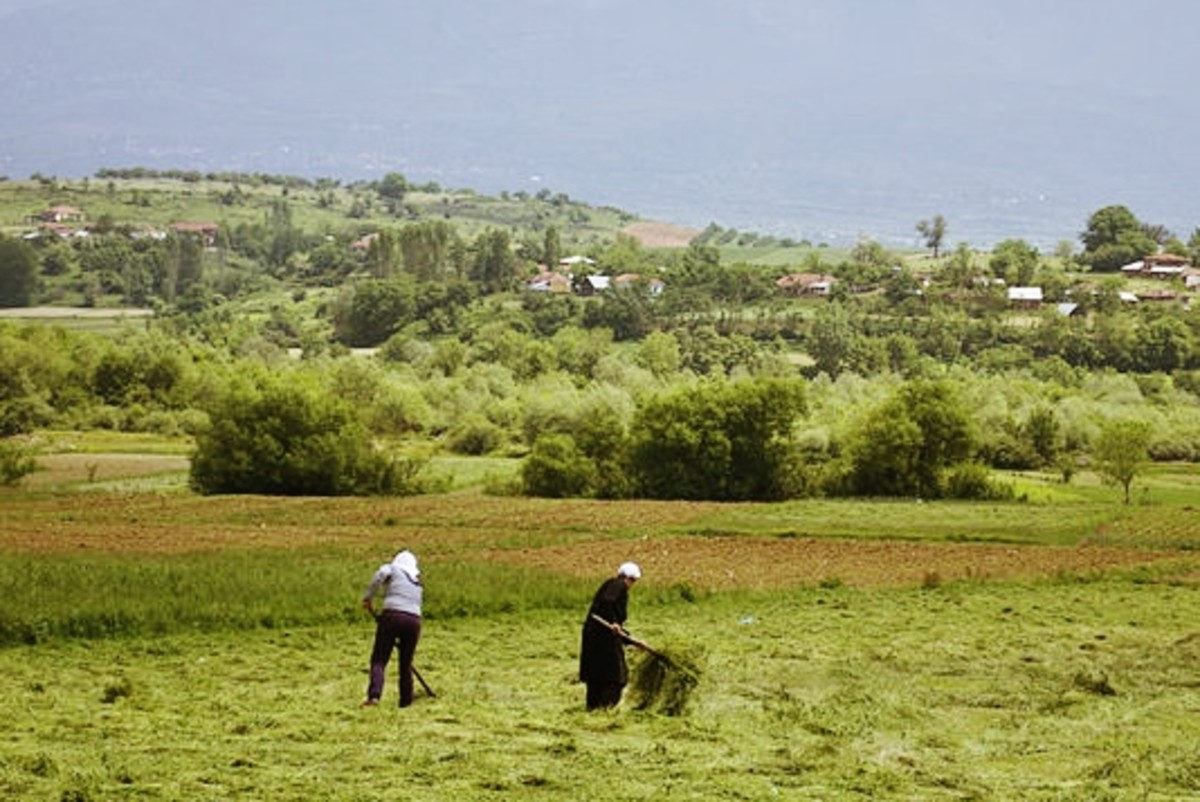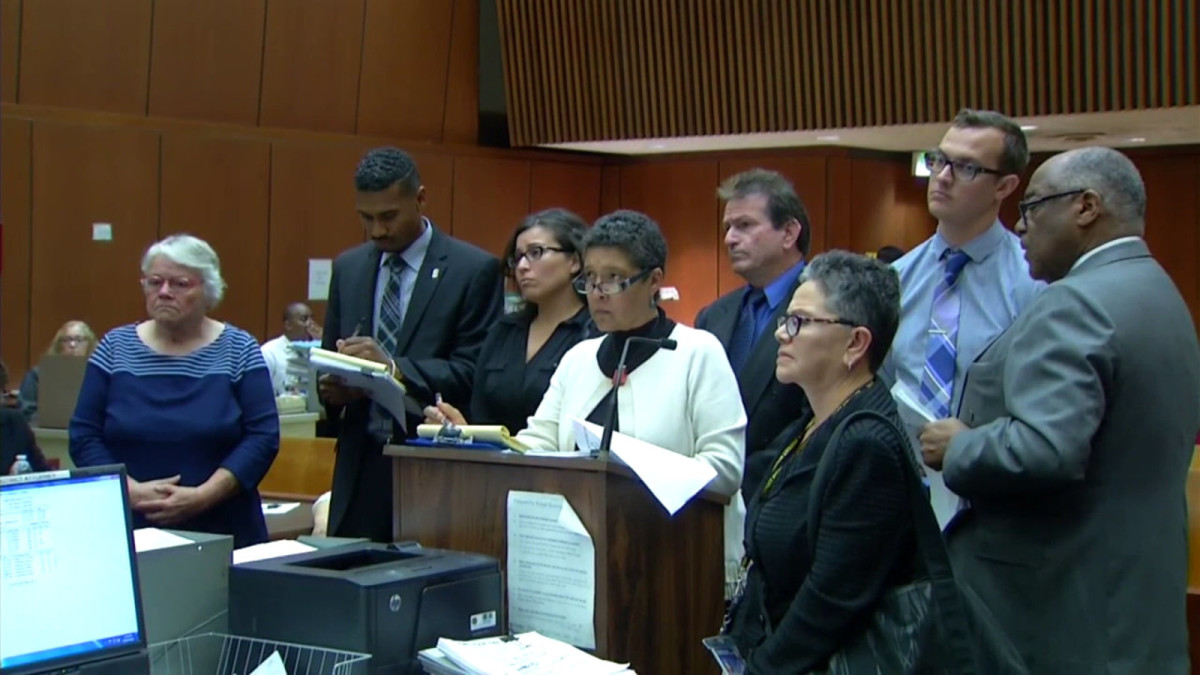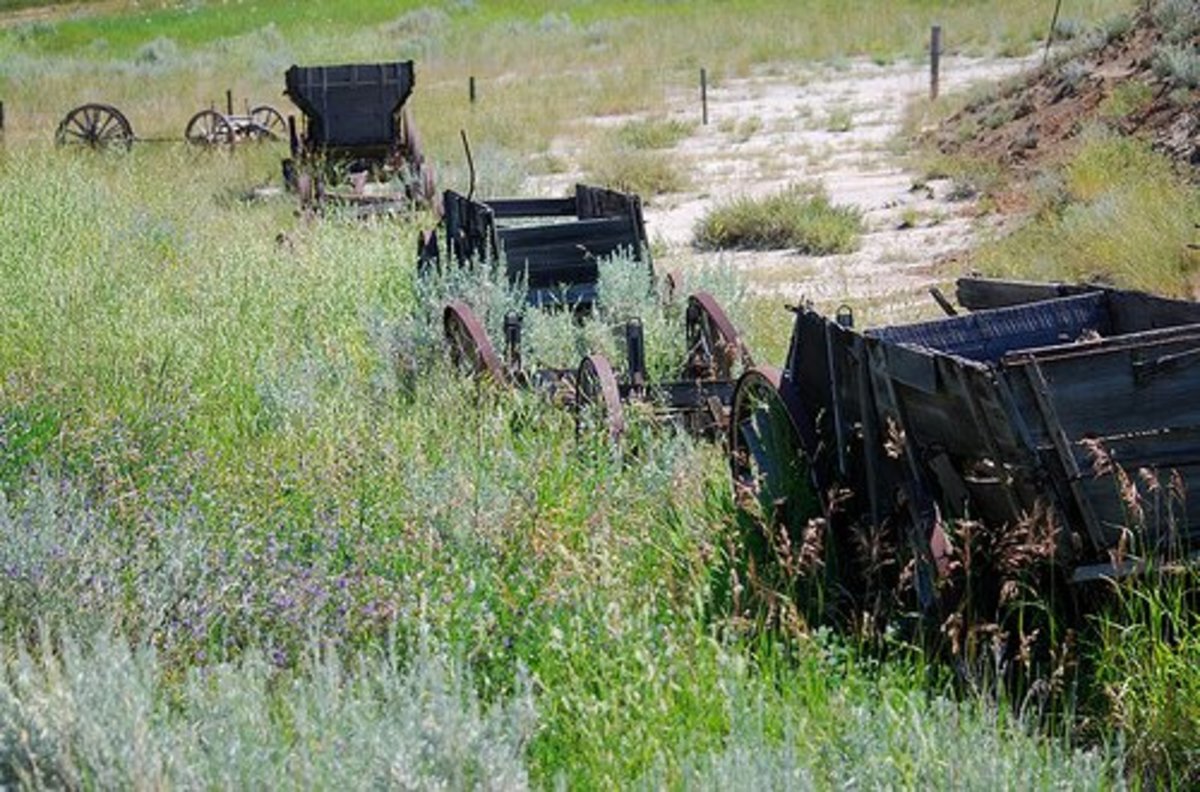21 Things That "Used" To Be a Big Deal
Something happened in my younger years from the 1950's through the 1970's, called "progress." To this present time, I have never fully-grasped, or rationalized whether our progress was a blessing or curse. Some, namely the revolutionary-thinkers, inventors with vision, the "sons of success," had rather rest in the belief that progress is a gloried blessing.
And I would love to join this group of people in their strong belief, but somehow, in silent times of thought, I look back at the "simplicity" of my personal life and suddenly become overwhelmed at how down-right easy it was to do things, go places, talk to people and live our lives in the years prior to 2012. Simply put from a simple mind, in today's life, all we really have to do is crawl out of bed each day and call on our "progressive" inventions and innovations to do the rest.
This piece never really called for an intro. I just thought that I would let the photos I have chosen, tell my story: "Things That Used To Be a Big Deal."
There are 21 things on this list. That's a meager amount of things we used to consider "treats" And believe me, there are a lot more things. A lot more.
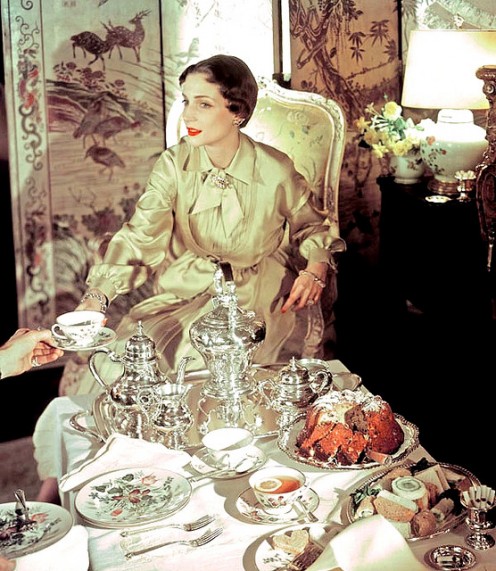
WOMEN’S FASHIONS
Was one of the biggest deals around when I was a boy in rural Alabama. My mom would rarely get to purchase herself a “store-bought” dress. And when she did, she treasured the dress as if it were made of fine silk. I suppose that when I was growing up, people didn’t really have that much. Or depend on the conveniences we have today in 2012. We just learned the value of contentment and when we were blessed with something new and it was needed, we learned another thing: Being grateful.

1949 REO PICKUP TRUCK AND PUSH MOWER
can you imagine for a moment, having to mow your lawn today with this "fossil" of a lawnmower? Or carry lumber, blocks, or anything you needed, in this 1949 REO pickup truck? Both were before my time, but still, when people were financially-able to buy such a truck or mower, they were so happy and couldn't wait to try their "new toys" out in their daily tasks.
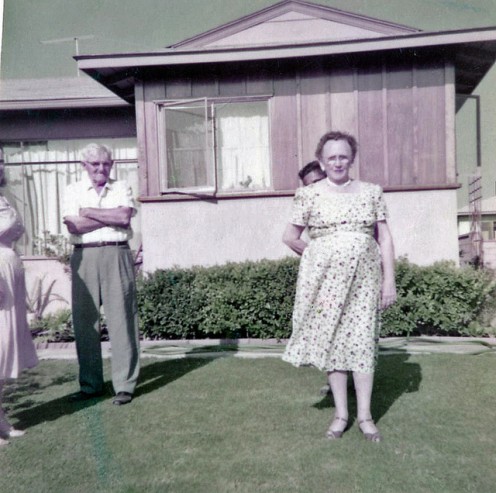
A NEW HOME
was, by all standards, a "big deal," for hardly anyone owned their own home during the time I was a young boy in rural Alabama. Most families were share croppers and paid monthly rent to a landowner out of his share of that fall's harvest of corn, cotton, or other crops. Only the higher-levels of society were able to buy their own homes. Those who went "up north," to cities such as Adrian and Detroit, Michigan to find public work that did pay more and enable these southern "transplants" to buy their home in the north. Or retire and build in the south.
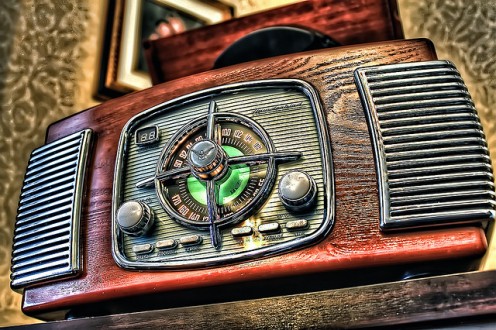
A RADIO
was not considered a "need," but a luxury in my younger days. Most people who desired Saturday night entertainment, would gather in someone's front yard or living room, and play guitars, fiddles, banjo's and other instruments that not only brought joy to these working families, but eased the burden (only for a while) of not being able to attend a square dance or social event that was going on in a nearby town.
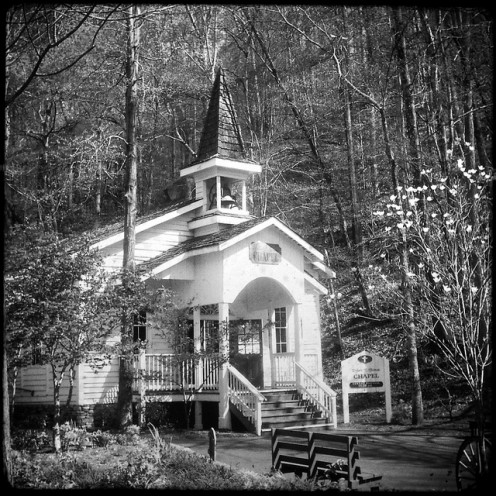
GOING TO CHURCH
for some rural families, or even townspeople, in my earlier years was considered a "blessing," not a "treat." The Lord's House was revered and respected by those who could find a way to get to the house of worship each Sunday. Most families didn't make enough money to buy a car or truck, they simply rode in a wagon pulled by a horse or mule. But even in these hard times, going to church was not taken for granted as it is by us today in 2012, but a great day for the family to be together and really know just how much they were blessed.
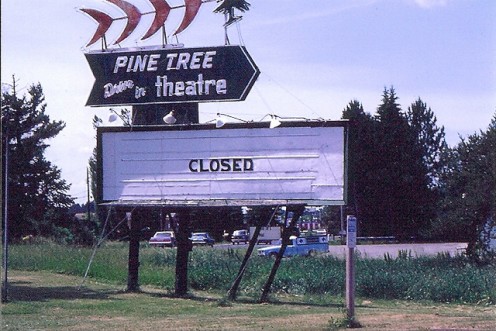
DRIVE-IN'S
at first, were condemned by the older people in the 50's, but with the persistent begging by the teenagers who "had to do something," besides work, would secure the family car, if one were available, or ride with friends to the "new thing" in town: The drive-in movie theater where they viewed western, drama and comedy movies that were suitable for all ages.
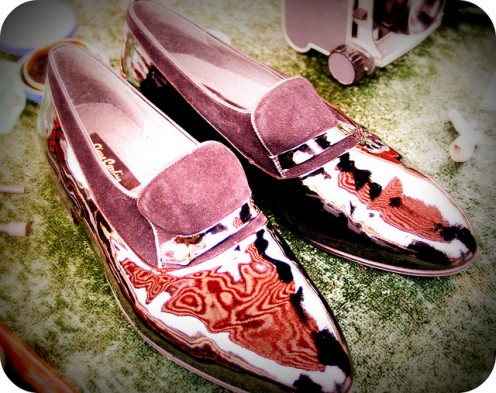
MEN'S FANCY SHOES
were in fact, a "treat," to the men who made enough money from their public or private jobs to afford them. And most men only wore their "good shoes," to church or some high-level social event such as a "mixer," to meet other people. During the week, men wore one style of shoe: Work boots that could take the torture of field work or logging.
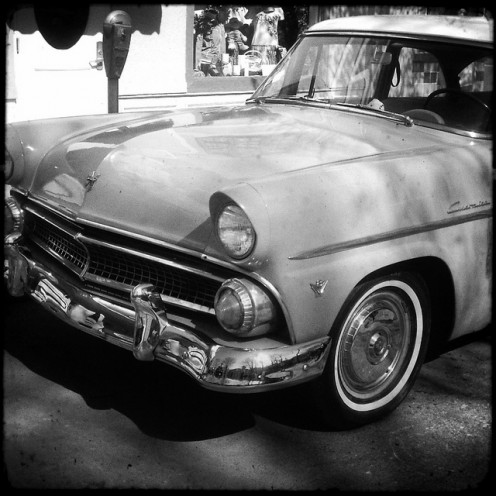
A NEW CAR
was "the" ultimate treat for any family in this time frame of my younger years. If a family owned a vehicle, it was a used car or truck bought from a neighbor or friend they knew would give them a great deal. But when a family rolled-up in a "showroom new" car, they were considered "it," by way of having money and influence. In all honesty, this was a very rare event, owing a new car by anyone in my childhood years.

A CHEESEBURGER
are you kidding me? No one just went to town and bought a cheeseburger in my early years. And my mom never cooked a ground beef patty until 1965. This is the Gospel Truth. Beef was so high in my boyhood that my mom and dad chose to eat fresh vegetables from our garden and maybe on a certain Fourth of July, we could go to our hometown and actually "buy" a cheeseburger. What a treat this was.

HOT DOGS, ANYONE?
the same thinking about cheeseburgers applied to hot dogs. No one could afford them. Most of our monthly-budget went for the power bill, rent, farming supplies, and what groceries we could afford and none of the grocery lists ever had "frankfurters" on them. Now if you had a dime and a ride to the local drive-in theater, you could enjoy a movie and a hot dog for that one dime. Can you do that today? No. I was just being ridiculous.
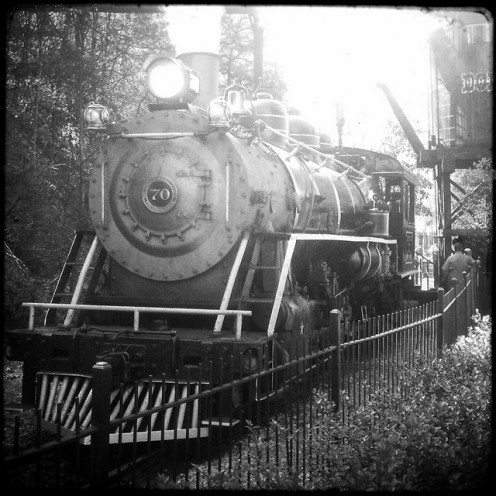
TRAVEL BY TRAIN
was not for everyone in the early 50's, and not for my family. Hamilton, Alabama did not have a railroad. The nearest railroad, and trains, were in Birmingham, Alabama, then an impossible-three-hour journey by car. If you had one. Or could pay an uncle to drive you there. But the people who traveled a lot in my childhood, used a passenger train. The cost was (to them) nominal. And the feeling of "being someone" on a train was priceless.
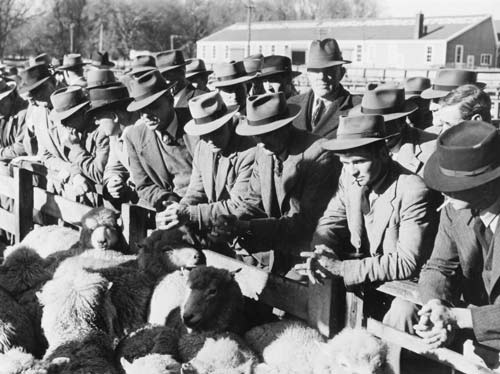
MEN'S HATS
were seen almost everywhere in town's when I was a boy. No respectable man would dare go in public without a hat. No caps for men back in my early days. Hats were the fashion staple for men. And those men with money and means, wore a nice suit and tie to complement his hat.
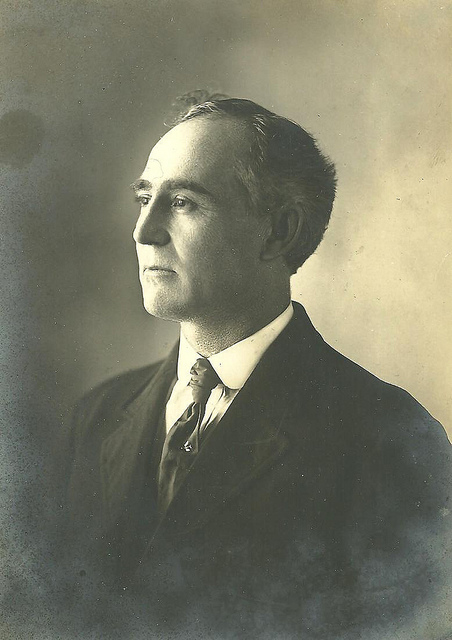
MEN'S STYLISH SUITS
made the man. If he wore a suit such as this gent is wearing, he was one of the following: a minister, judge, lawyer, banker or insurance agent. Either way, he looked his best in a nice three-piece suit. He was able to conduct his business with other men in nice suits. And by wearing a nice suit, he was saying to the available single girls, "I am a catch. Hurry and get me before your girlfriends do." And wearing a suit was a nice gesture of respect to the man he was doing business with.
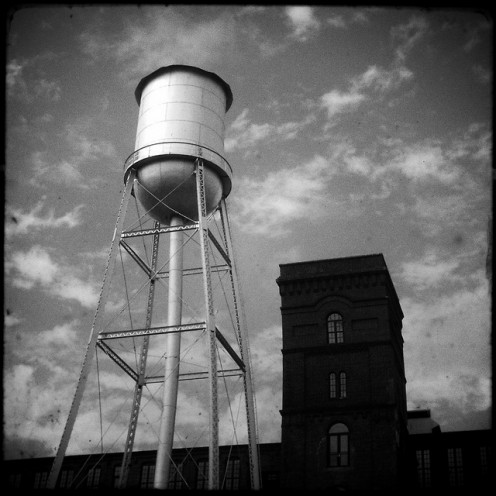
WATER TANKS
was a sign that a town was on its way for progress. Would you believe that even in most early towns in the rural south that people had to "draw water" from a well on their property or from the public water well that was in a central location for the convenience of its citizens? This is a fact. And when towns began to grow with more people, businesses, and jobs, the need for huge water tanks emerged. These are still in use in some small towns in Alabama.
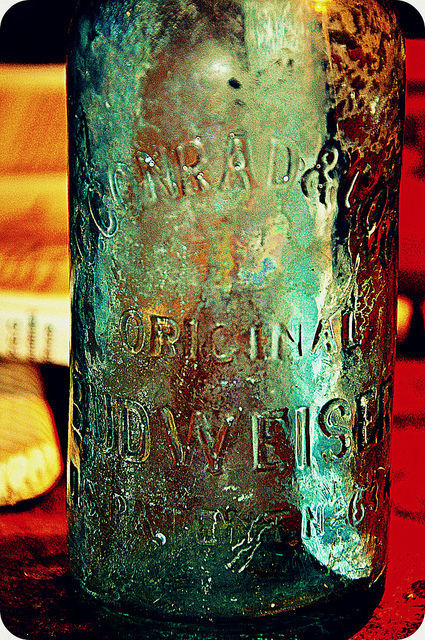
"KING OF BEER"
yes, drinking was not a public "treat" for those who loved beer in my day. Fact is, my town was only "wet" one time, but today, it is illegal to sell alcohol in the city or county. But as some old-time philosophers have said, "those who do, will find a way to do it," and they did. Budweiser, one of the first beers to be sold in the United States was shipped in bottles like this one which would fetch a pretty penny today for collectors. It was not until the late 1950's that beer companies gave the drinking public a choice of a glass bottle or a can that was opened with a can opener. Nowadays, buying beer with easy-open tops is commonplace.
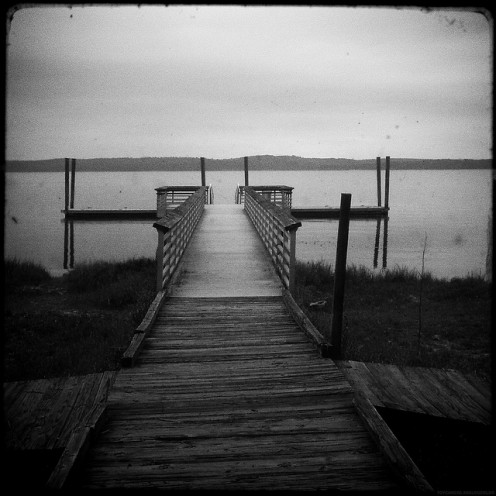
LET'S WALK ON THE PIER
and see the ocean. Yeah, but where is your money? Scenes like this were so far away for rural families in the south that it was comical. There was no such thing as a vacation for my family. Or the families who lived near us. Share cropping is a full-time job and when the harvest is over, there are other maintenance jobs that always need doing around the farm. Seeing a sight like this would require a visit to Michigan and one of the Great Lakes. Our family might as well be planning a trip to heaven.
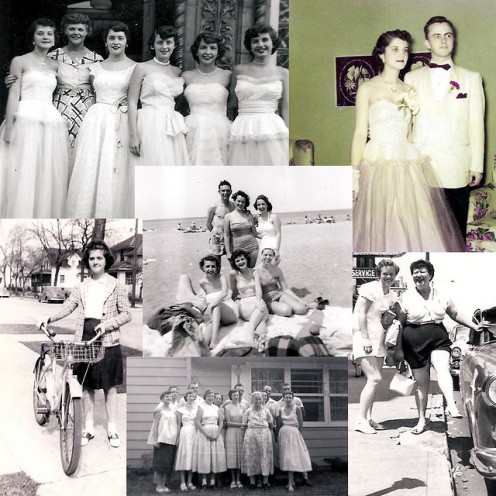
PROM NIGHTS
and going to dances were strictly-forbidden by parents in the "olden days," when I was only a toddler. Not to be harsh, but the local church was to be credited for teaching for young people to attend prom's or teenage dances, were "of the world and satan," as the preachers would say. Most parents heeded their advice and kept their teen's at home as they wanted their young boys and girls to be raised right. But in the late 50's, things began to change and social ideas changed also as teen's were allowed to have prom's and dances. With chaperones of course.
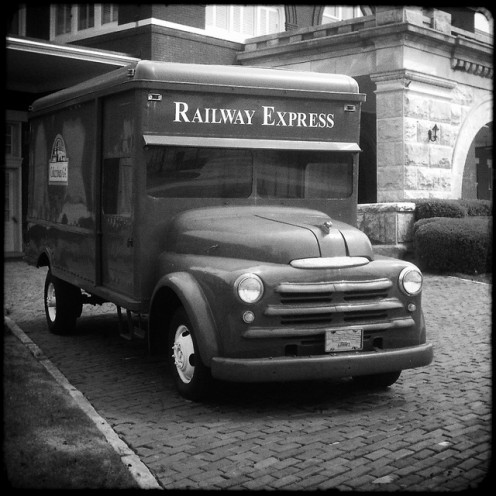
DELIVERY TRUCKS
like this one, were "the" semi's of the early days in our country. There was no such of a thing as a diesel "big rig" rolling down the interstate with goods and supplies for the American family to use in their homes or businesses. Today in 2012, it is an everyday thing to see as many as ten or fifteen "big rigs" hauling down our highways making their deliveries to plants, stores and restaurants. How things have changed, right?
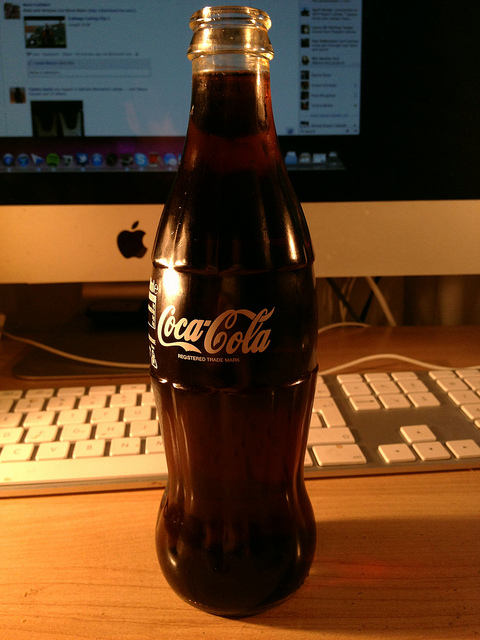
OUR FRIEND, COCA COLA
was always around in the early 50's and in years prior to our nation's progressive moves. I always wanted an ice-cold Coke when my dad and mom, and yes, me too, would make our monthly-trek to Hamilton, Alabama, our hometown for groceries and things we needed. Coke was not a needed thing according to my dad who was a wonderful man and financial manager. It was my mom whose heart gave way to my constant begging for a "nickel Coke." Yes, they only cost a nickel. In 2012, they cost $1.75. or $2.00 in places. But I still love them. Then and now.

HELLO, JOHN DEERE
so long, faithful mule. This was probably the turning point of rural America, farmers who could afford a John Deere, Ford or Massey-Ferguson tractor to tend their fields in a more-efficient and economical fashion. By the late 1950's, American business had installed the "pay over time" system which meant a man with good credit and character, could, with a good down payment, own a tractor to do his work and let "Mr. Mule," go on a long vacation.
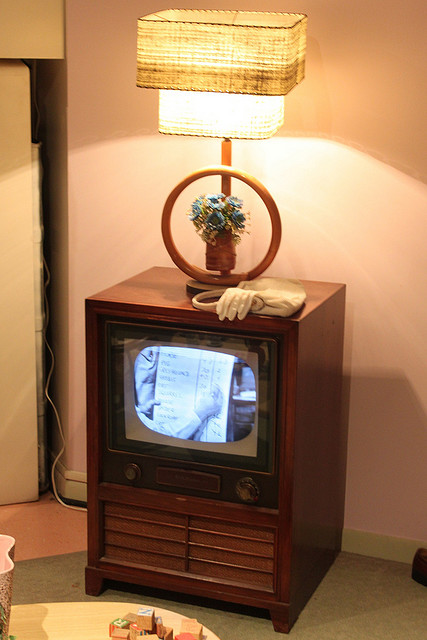
LET'S WATCH TV
tonight and forget that old-fashioned radio. You knew when you heard that statement, that things were definitely changing. And are still changing. This was "the" thing to have in your home if you wanted "real" entertainment. You could actually "see" the movie stars and celebrities such as, Steve Allen, Cid Caesar, Jack Benny, Jackie Gleason and early super-stars doing their own shows that at first lasted only one-half hour. And did you also know that in television's infancy, the early television broadcasting networks only provided a few hours of television a day? A day. You read that right. Today, forget about it. Televisions are on 24/7 from cable to satellites in orbit. Imagine you being the first family in the 1950's to own one of these "luxuries."
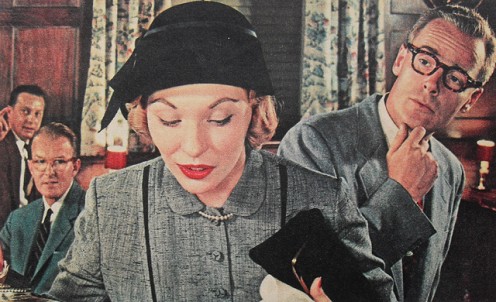
JUST FOR THE LADIES
I couldn't resist publishing this photo bigger than those above it. I loved this photo the first time I came across it. For discerning ladies of the late 1950's, she was not fully-dressed to be seen in public without her pearls, hat, and gloves. In days prior to the hat, some women wore veils as a gesture of modesty. I have nothing at all against today's fashions for the ladies, but a part of me wishes, if only for a day or two, fashions for men and women would go back to "this" day and time.
"I sincerely thank everyone for going with me back in time when the things in this piece were considered a real "treat," and not an everyday purchase." "I also apologize to one and all if I, in any way, bored you while we were on our magical journey."
"And my sincere thanks for your patience and for reading this hub."
Your Friend,
Kenneth



